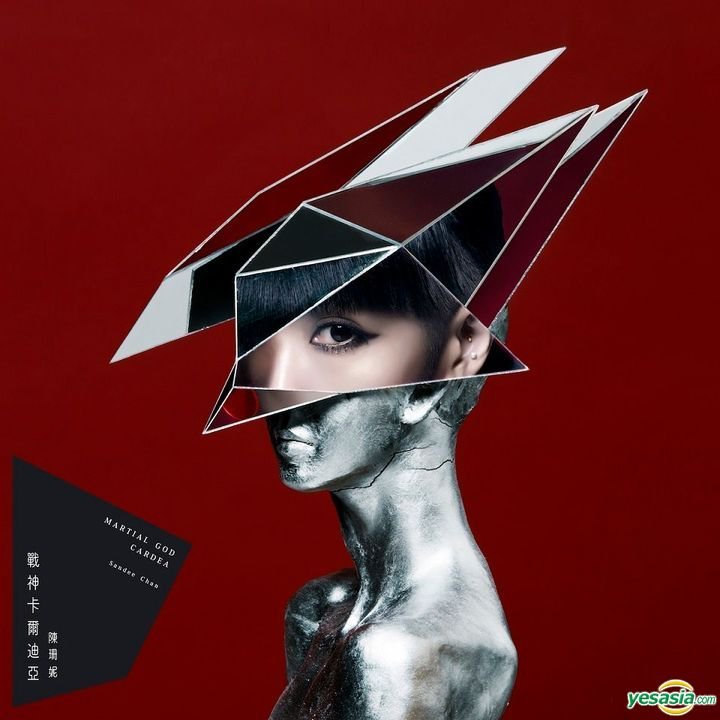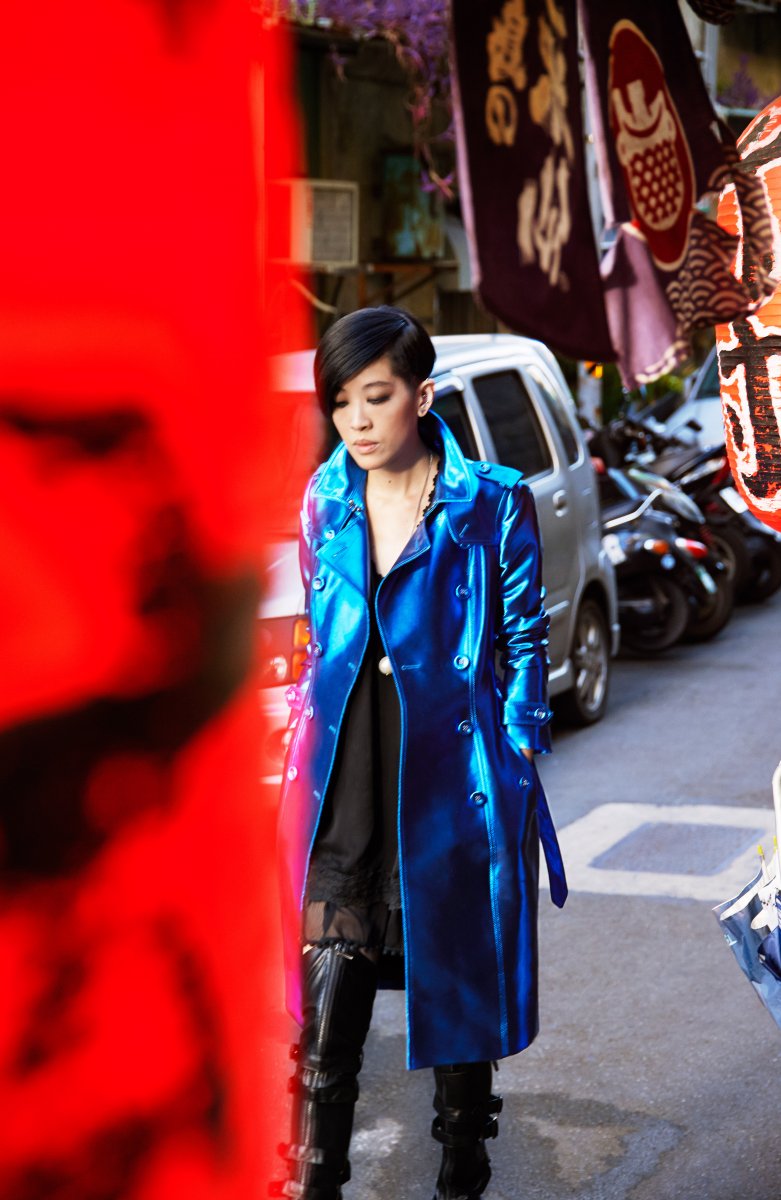"The Visuals Should Be Like Poems" Says Taiwanese Pop Vet Sandee Chan Ahead of Nov 17 Yugong Yishan Show
Since getting her start in 1994 as one of Taiwan's first breakout pop stars with alternative leanings, Sandee Chan has since had an illustrious career as a producer, writing songs for filmmakers like the legendary Wong Kar-wai, and filling up clubs and arenas while touring her own material. Ahead of her Nov 17 gig at Yugong Yishan – for which she will use an ambitious multi-media backdrop for songs from her latest album, Martial God – the veteran songstress tells us writing lyrics for the digital age, penning a song for Wong's classic film In the Mood For Love, and more.

You're working with a top-notch visual arts team to make this tour a pretty major multimedia event. How do those visuals complement the music?
The images are quite lively and cutting edge. We tried not to think about it in any old-fashioned way at all. I like working with visuals, especially for the cover art for my latest album, because it helped me further explore the themes of netizenism and an entire generation living online.
I think concert visuals should not merely prevent boredom by constantly flashing lights and random shapes. Considerable time and discussion should be put into it so that the visuals become akin to poems that convey meaning.

The biography on your website says, "(Onstage) Sandee ... shows the skill of a comedian or talk-show host behind her punk-rock appearance and princess charm." What have been some of the funniest examples of this?
Well, my band and I usually do dress rehearsals over and over again, to ensure all the music becomes second nature to us. It's a necessary process, but it's grueling, so it's fun to have off-the-cuff moments at the shows. But it has to be genuinely spontaneous – to say something that's set up honestly doesn't make sense. It's also crucial to accept errors, to feel the emotions of the moment, and to be present.
I remember during my last tour, in the middle of each concert I'd sing a song called "Distance." And I'd always find a volunteer from the audience and have them sit by my side to serenade them with this song. I think it is a very funny situation and a great psychological experiment. During one gig in Guangzhou, my volunteer for that song was bolder than most and tried to hold or hug me briefly while I sang, which was endearing, to say the least.
On this current tour, I have a song for which the audience can use their phones to interact with part of the show, to see added visuals and sounds that evoke themes of sexism, broken boundaries, and other feminist issues. It's meant to be entertaining and not overly serious, yet subtle enough to provoke thought and give you something to take home and continue to chew on after the show.

What other big ideas have you been tackling with your songs and performances lately?
My previous album, Martial God Cardea, has a song called "As the Sadness Was Downloaded Two Times." It's the foreword and introduction of this new album, and it also kickstarted the discussion about the internet generation that I had on my new album and current tour. The song conveys themes like phone addiction, and the busyness and loneliness that this generation contends with.
So how does this new album build on the last one?
I had trouble breaking through the pressure I felt since releasing my previous album. It was hard to follow that up! But I've been able to find more important and more complex themes to play with this time, and writing and recording it was a quick and clear process.
Music production is easy for me. With my current writing and producing proficiency, I'm able to make very precise work in a very short period of time. But this time I had hoped to spend more time observing the world, caring about my environment, and drawing inspiration from that. I think the meaning of the work is the most important thing.

You wrote the song "In the Mood For Love" for director Wong Kar-wai's film of the same name. What was that like?
I've always liked his films. After receiving the invitation to work with him, Wong let me have a chance to see it ahead of its release. It was such an incredibly beautiful film.
However, to write a song that would fit with that, and be an extension of his vision, was a great challenge. I flew to Hong Kong to work on it, taking advantage of a gap in Wong's schedule. But we only had a brief encounter, and hardly discussed anything about the content of the film or my performance for the soundtrack. And yet, I think a lot of times this sort of thing doesn't require exhaustive explanation. Simply being in the right place at the right time, and letting good things happen naturally, is often best.
It was similar when I worked with Hong Kong singer and director Mak Mak in recent years. We rarely met, we rarely talked about the details of our work, but we worked together on some great projects. I think this shows a higher level of appreciation and trust in aesthetics and talent.

You have been a songwriter and performer since the early 90's. What are some of the most challenging aspects of staying in the industry this long?
It's hard for me to answer this question. Since the '90s, there have been so many female producers, working in analog and digital. I worked with a lot of important singers, and also experienced a lot of Chinese music. These are very precious life experiences.
I've worked with both mainstream and indie artists in pop music and alternative music. Over the years I have always enjoyed independent music very much. I tried very hard to help the artists I worked with maintain their independence and artistic freedom. Even though that is honestly rare in Taiwan's music industry, I think it helps maintain the integrity of the works that I produced. Thinking and character are the most important thing, and I think this will allow me to continue working with new singers and musicians of different generations.
So what have been some of your happiest memories over this long and illustrious career?
I think the most important thing about music or life is the process, and the techniques you learn. I have had the opportunity to create and make my own albums when I first entered the industry. And I have been very grateful.
When I started out, I worked very hard to learn about songwriting and recording, and I was very lucky to get a lot of guidance from some of Taiwan's top musicians. Of course, it was a very hard self-training process, but I really appreciate the opportunities I've been given to be a professional music producer.
As for the future, I never plan for the long term, because in this industry, plans can never keep up with changes. All I know is that I can't stop doing what I'm passionate about, and that I have to trust I'll know what to do in the moment once the time comes.
Sandee Chan will perform at Yugong Yishan on Nov 17 at 8.30pm. For more information, click here.
More stories by this author here.
Email: kylemullin@truerun.com
Twitter: @MulKyle
Photos: Getty Images, artofthetrench.burberry.com, yangtzelegend, Twitter







